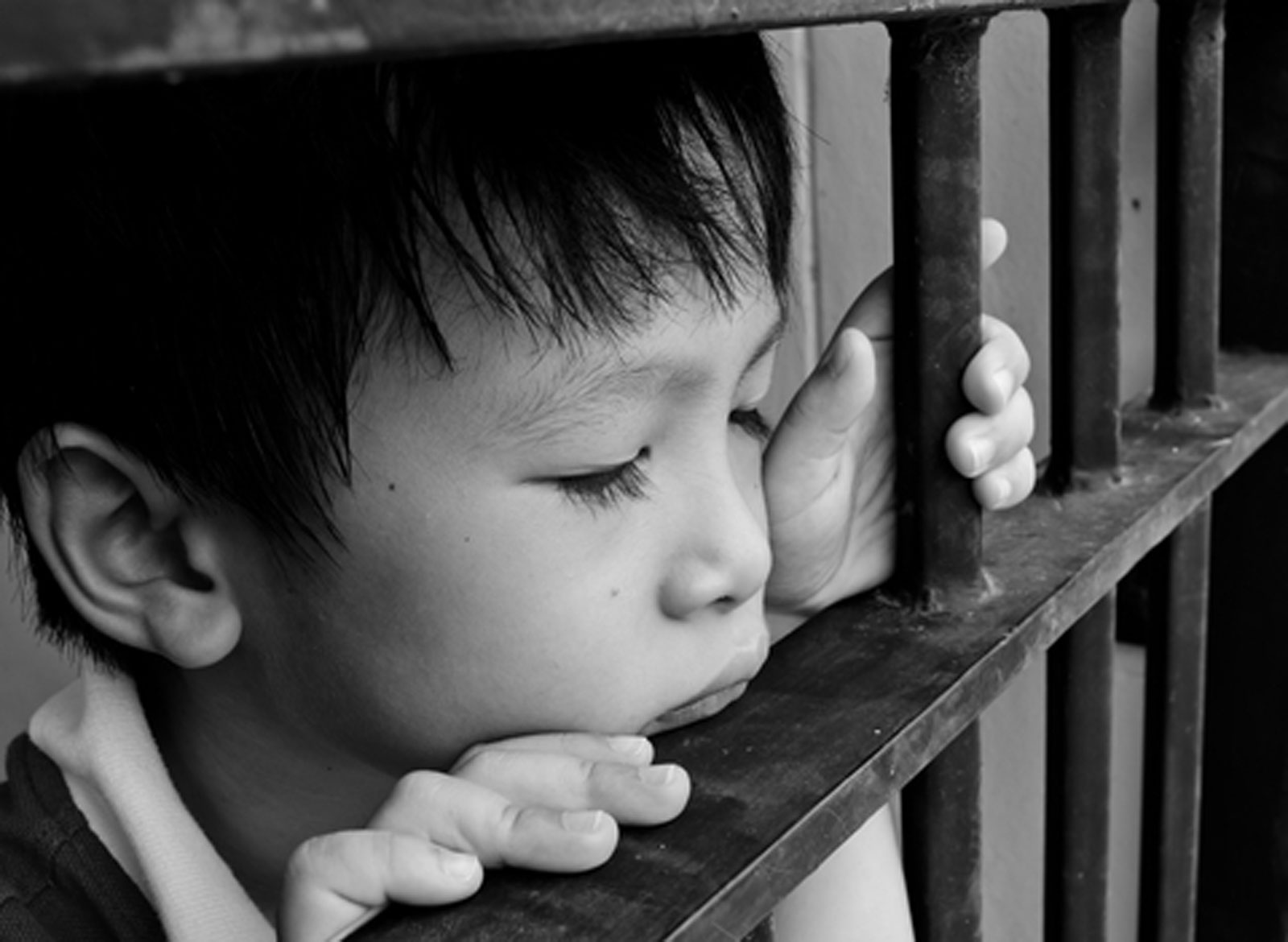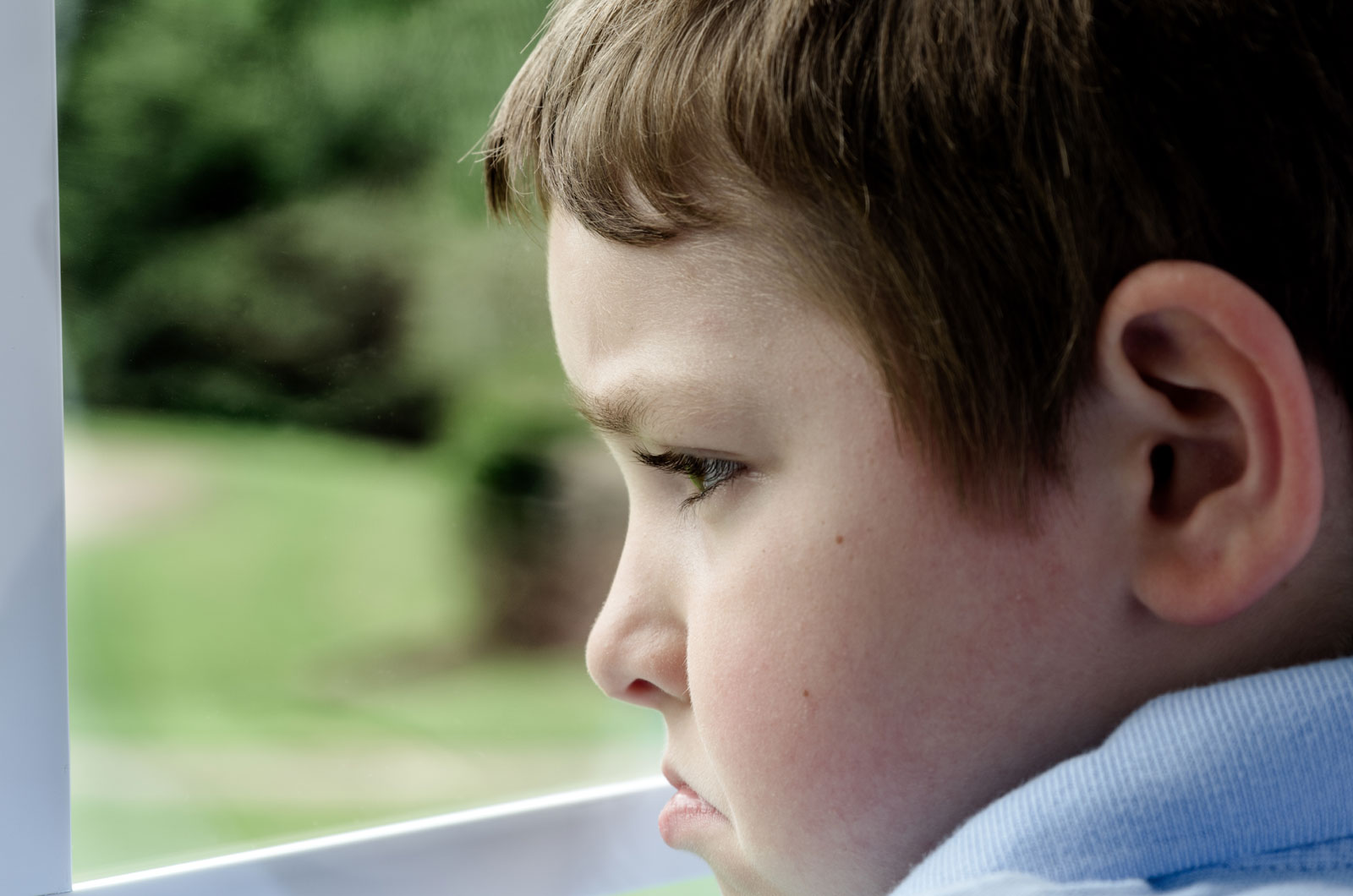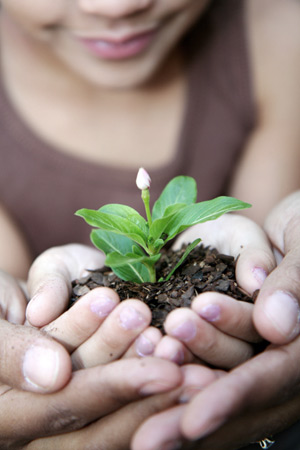Emotional Child Abuse -
It May Not Be What You Think

There is no universally accepted definition of emotional abuse. It is commonly defined as "systematic attacks on a child's emotional well-being and sense of self-worth."
Think of emotional child abuse as a pattern of behavior that attacks a child's emotional development, well-being and trust in the world and others. These attacks can include overtly violent verbal acts or simply chronic, excessive, aggressive or unreasonable demands that place expectations on children that are beyond their developmental capacity.1
Often, parents unknowingly place inappropriate expectations on children. Three-year-old children,
for example, can not be expected to sit quietly for an extended length
of time. They do not have the physical control of their bodies yet, nor
the coping skills to always manage "listening" to requests to "behave."
I am not telling you this because I want to "tell you how to raise your child," but because I want you to stop unintentionally creating more resistance and start building cooperation.
Sometimes, adults place unrealistic demands on children
only to end up frustrated at the lack of compliance.
Even an overly cooperative child is at-risk for being dominated and controlled through a system of praise and rewards which can be emotionally damaging, as the child feels pressured into a constant race to keep up with the expectations of others. Expectations that do not consider a child's needs and feelings do more harm than good.
The end result: a child who has less ability to organize his thoughts,
relate in healthy ways, manage his emotions or resolve conflict peacefully.
Violence in our words can manifest in a variety of ways including:
Any time children are exposed to verbal abuse or violence, it chips away at their sense of self-worth and lays a foundation of hopelessness. Sometimes it’s just a scratch and other times it’s a whole chunk of self-esteem that falls off.
It is not always the severity of the event but the attention, intention, and follow-up reactions of adults that determine whether or not these disconnections in our relationships (which happen and are normal) become healing moments of growth or moments which undermine healthy development.
The child who feels heard, and emotionally supported will grow from negative experiences, learning to cope and strengthening his capacity for empathy. The child who experiences criticism, isolation, punitive consequences, negativity, shame, blame or guilt does not develop in the same ways.
We all make mistakes, but how many times is too many?
Remember, not all child abuse is physical.

It is important to remember that not all child abuse is physical. Emotional child abuse is a silent epidemic, easily overlooked, and the effects can be hidden in all sorts of behavioral labels. We unconsciously blame our children for the conditions we have co-created.
Emotional child abuse is invisible, just as damaging as other forms of abuse and sadly, it is hiding inside many of our homes and invading our most precious relationships.
Repeated disrespect or unreasonable criticism towards your child can have serious emotional consequences and long-term repercussions. Parental stress is the single largest contributing factor to unconscious parenting which can be dismissive.
Emotional abuse can impair your child's self-image, self-esteem and interfere with his ability to function adequately in society and with peers. Negativity in the home can impact your child's academic success and ability to develop healthy, pro-social, and intimate long-term relationships.
According to Prevent Child Abuse America, emotional abuse also includes "failure to provide the emotional nurturing necessary for a child's psychological growth and development." Failing to provide love, support or guidance is destructive to the healthy development of the brain, and the attachment needed to create strong parent-child relationships.

Most parents do not want to intentionally hurt their children. Often, they unconsciously inflict emotional abuse without even realizing that their belittling comments and harsh handling have an effect on the relationship. Many would even argue that they don't "fail to provide emotional nurturing, love, support or guidance."
And I would agree that most parents do show love, guidance, and support - in fact, they are usually wrapped in a thick blanket of shame blame, judgment and guilt. So ask yourself: Are you also providing your child with the empathy, tolerance, acceptance and skill-building he needs to develop and thrive?
You're acting like a baby. You're not being nice. You're making me angry. What are you stupid? You constantly disappoint me. I can't trust you. You have no respect for me. Get out of my face. You are asking for it.
Judgment, blame, shame and guilt-ridden verbal attacks are destructive phrases with unwanted consequences and more importantly, they don't teach children how to reflect on their behaviors.
They only lead kids to feel bad about themselves.
When you speak to a child, be aware of your tone, attitude and body language. What are you communicating? Are you holding a space ripe for breeding negativity or one where positivity can flourish.
A repeated disregard for children's feelings and needs in favor of demanding obedience and compliance with adult requests can delay and alter emotional development and intelligence.
When you allow your own parenting stress and fears or unconscious habits to influence how you react to or treat your children, you risk teaching them the same negative behaviors that you have tried so hard to erase.
You can't teach your child to manage strong emotions, which sometimes overtake their whole body, if you cannot successfully manage your own emotions and stress.
You cannot teach your child that their feelings and needs matter if you do not practice self-empathy and process your own frustrations and feelings!
Six Types of Emotional Abuse
Effects of Emotional Abuse
Emotional Abuse Signs & Abuser Characteristics
PROFESSIONAL OPINIONS
"There's this myth that kids are resilient."
"When they have good social support, they are. But when they're subject to constant denigration, it's different. When you tell them, `You're ugly,' or `You'll never amount to anything,' that's the mirror they see themselves in… If we don't raise children to be competent human beings, if we do not give them the tools to value themselves and other people, then we're in bad shape. Sometimes they just hurt themselves. But sometimes the way they cope is by finding someone else to kick."
- Psychology professor, Laura Brown of the University of Washington
"If a child develops a map of the world that depicts people and places as hostile and the child as an insignificant speck relegated to one small corner, we must expect troubled development of one sort or another: a life of suspicion, low self-esteem, self-denigration, and perhaps violence and rage. We can also expect a diminution of cognitive development and impediments to academic achievement and in-school behavior."
- Dr. James Garbarino, Psychological child maltreatment: A developmental view. Family Violence and Abusive Relationships, 1993.
HOW TO HELP

Emotional abuse often stems from a cycle in which parents who were also raised in verbally charged environments, and who experienced emotionally abusive relationships with their own parents or had little emotional support growing up, continue that treatment, unconsciously, in their own families.
Recognizing the impact of you own childhood and family history is an important first step if you want to reduce aggression, shift uncooperative attitudes or end destructive behavior and create long-lasting change in the home or classroom.
We should encourage the development of strong attachments and support parents as they express warmth and positive regard for their children. Instead, we have been conditioned to show disdain for the parent who is sensitive to the needs and feelings of a child and call them "permissive" or blame them for generational problems.
We need to end the "childist" attitudes that demand parents control their kids or ask them to "hide children away" unless they act in ways that are pleasing to the eyes and ears of a fickle adult-audience.
Adults must understand that the ways in which they behave and treat others has a direct impact on their child's perceptions of the world and his behavior. Many adults do not realize that the steady stream of evaluative statements and micro-management are damaging.
If more parents and teachers were in touch with their own inner world - the fears, needs and feelings, driving their own perceptions, they would be more able to recognize the pain that a child endures at the expense of traditional child-rearing.
Most parents would probably embrace change and
do everything in their power to end the cycle of abuse.
Health care professionals, spiritual leaders, and concerned individuals can join together to increase awareness, education and prevention of emotional child abuse in the community and among parents by choosing kindness and creating supportive resources for parents from the moment their children are born.
Families need to be encouraged to form supportive relationships with other parents and find local support systems. Continued research in topics related to emotional child abuse and parent-child relationships is desperately needed and must be undertaken.
You can help - Make the Promise to TEACH through Love and practice non-violent communication in your relationships with others.
Download and circulate the emotional abuse awareness flyer and write your local representatives and encourage them to support programs and legislation that promote healthy family interaction and funding for parent education programs.
Sources:
1. Child Welfare Information Gateway https://www.childwelfare.gov/pubs/factsheets/whatiscan.cfm
2. Psychological child maltreatment. A developmental view. Garbarino J. Erikson Institute for Advanced Study in Child Development, Chicago, Illinois.http://www.ncbi.nlm.nih.gov/pubmed/8356153
3. Murray A.Straus and Julie H. Stewart, Clinical Child and Family Psychology Review, Vol. 2, No. 2, 1999 Corporal Punishment by American Parents: National Data on Prevalence, Chronicity, Severity,and Duration,in Relation to Child and Family Characteristics http://uwf.edu/ejordan/web/DEP31030516/Entries/2011/8/12_CIP_Essentials_files/Straus%20%26%20Stewart%201999.pdf
What do you think? I love hearing from you, so leave me a comment below. Share your stories, post your challenges and if you benefited from this article, consider sharing it with a friend!

comments powered by Disqus
Emotional Child Abuse: Return to Parenting Main
Emotional Child Abuse: Return to Home
